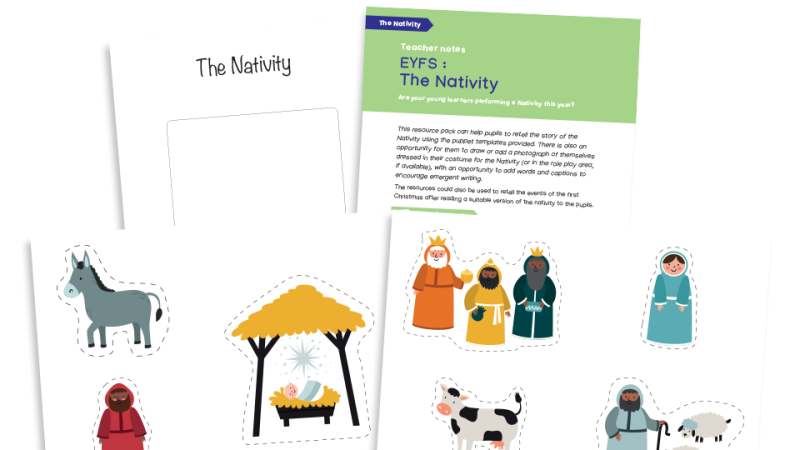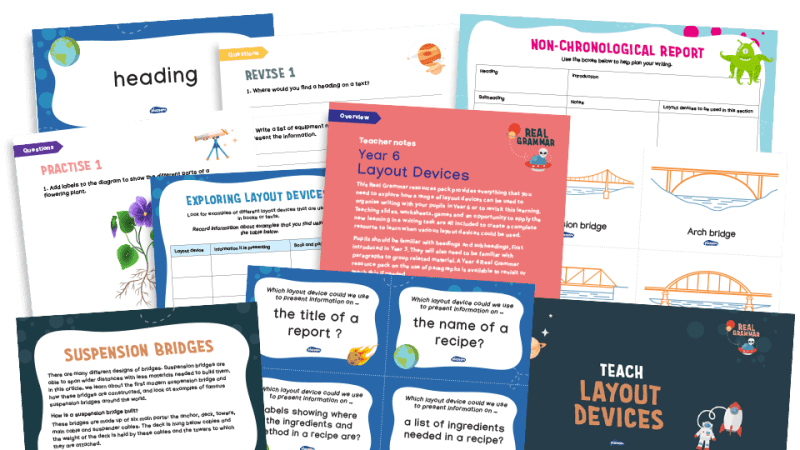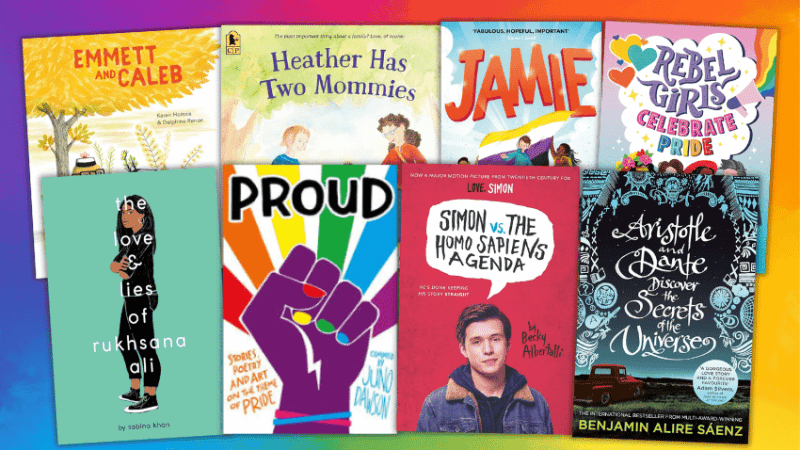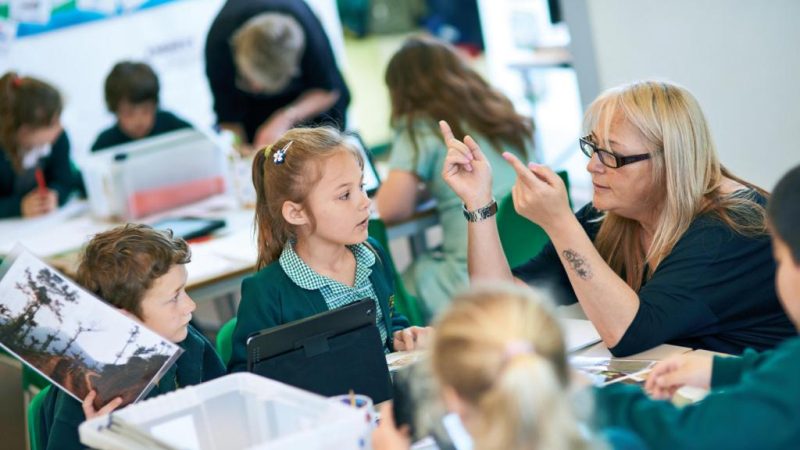How Good Verbal Feedback can cut your Workload and Help Children Become Accomplished Writers
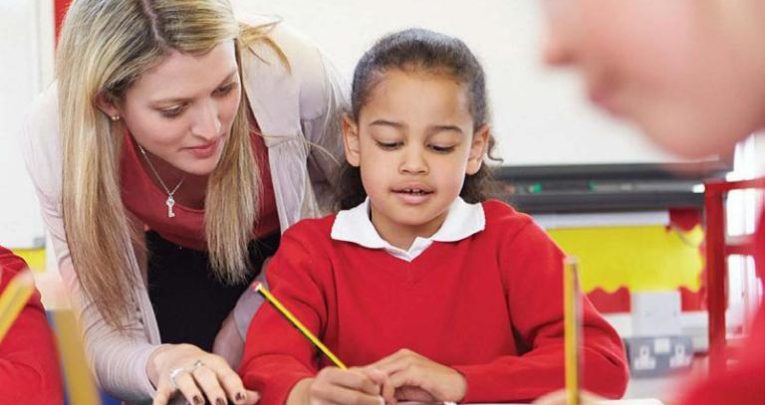
Done well, verbal feedback can cut your workload and help children become accomplished writers…

Always start with a question. Three simple words: “How’s it going?” That’s all you need to open up some of the best, most purposeful, satisfying and productive conversations you can have with the young writers in your class.
From this point onwards, there are many benefits to running pupil conferences. We know, for instance, that research emphasises the usefulness of verbal feedback, which is immediate, relevant, and allows children to attend to learning points whilst actually engaged in the process of writing.
They can help to alleviate the burden of carrying out time-consuming written feedback, and the interactions you have during these conversations can be used to make assessments of and for learning.
There’s more to it than that, of course. In the act of giving students strategies and techniques to be instantly applied to the work in front of them, you are not just improving the written product – you are helping children to become better writers.
Surely that should be the highest ambition for writing teachers and writing pedagogy? During each conference you will be giving them a little more ‘real writer’ knowledge to take forward into new writing assignments – and also into their present and future lives, beyond the school gates.
Reflective, motivated writers
More and more people are adopting the view that writing for pleasure is an important part of teaching students to write, and conferring with children is at the heart of this approach; it allows them to have agency, become self-directing and feel greater motivation in the act of writing.
Think of each conference as a conversation in which you are the trusted and sympathetic adult who will help and advise, without being judgemental. You will be drawing on your own experience and insights as a ‘writer-teacher’, who writes when possible alongside the class and who is therefore able to talk to pupils ‘writer to writer’.
You won’t be concentrating on transcription issues – unless the conference is taking place at the editing stage of the child’s writing – and you won’t be seeking to ‘fix’ the writing by imposing your own ideas as to how the piece should go.
Instead, you will be guiding the children towards making their own reflective and informed writing decisions. Best of all, you will know that you are giving responsive, high-quality and focused tuition to individual writers in a very short space of time (less than five minutes for a conference).
A good conference has a definite shape. In the first part, the child talks about their piece and sets the agenda by identifying a difficulty or an uncertainty. You, as the teacher, take in this information and perhaps tease out a little more, using what you have been told to make a decision to teach just one or two things.
In the second part, you move forward and teach those things you have decided will help the student move towards being a better writer.
The transcription below, taken from a conference conducted with a pupil in a Y5 class at the start of a personal writing project, shows how this works.
Teacher: How’s it going?
Pupil: Well, I want to write a piece about my grandma, and so to start with I’ve been trying to make a whole list of things about her that I could put in. [Talking about the writing]
T: (Scans list) There are lots of ideas here, aren’t there? I can tell she’s quite an unusual person, isn’t she? And I sense that you’re really proud of her, and you’ll probably want to put that over to your reader. [Responds briefly with interest about the content; gets a line on the pupil’s intention as a writer; thinks about making a teaching decision]
P: Yeah. I’d like people to know she’s great and she’s done some brave things, but I’m having trouble with getting it into a plan, don’t know where to start and what order to put stuff in. And what sort of ending to write. [Reflects; states problem and sets agenda for the conference]
T: Mmmm, so you’ve got lots of information and it’s hard to organise it all. Well, I can tell you something real writers often do when they have this problem. They focus on the most interesting thing about that person and they just write about that. You just said you wanted people to know about her courage, right? Well, how about picking the thing that shows that most clearly about her? [Teaches pupil to focus on something specific; refers to ‘mentors’- real life writers ]
P: (Thinks for a while) Mmm. I suppose that would be when she ran in the marathon and she never gave up, even when she got so tired she nearly couldn’t breathe!
T: Great! I’d certainly like to hear more about that and so will all your other readers. So what will you do next? [Encourages self-regulation]
P: Well, I could plan it – like a story maybe? Beginning at the start of the race and then the middle could be what it was like when she was running, did she talk to anyone and things like that. And then the ending when she nearly didn’t make it, or something? [Pupil becomes self-directing]
T: Sounds good to me! So I’ll leave you now to get on with your plan. [Supports pupil’s self-direction].
This conference was over, but it wasn’t the only one that took place with the same child while she was writing her piece. We have found that it is possible to confer with every child in the class once a week, and some more frequently. Sometimes, children will ‘listen in’ to someone else’s conference and reap the benefits of the advice offered. Peers will conference each other on occasions, too. And we note where similar difficulties are arising and make them the subject of mini-lessons.
It has to be said that conferencing is a skill to be learned and developed through regular practice, but you will in time become adept at asking the sorts of questions that offer up the information you need and enable you to give your pupils the kinds of advice that will help them as writers.
Try it out
If you’d like to try the pupil conferencing approach, you’ll find lots more information about how it can work on the authors’ website (literacyforpleasure.wordpress.com). This includes a set of ‘conference cards’ to download with question prompts that can aid you and your teaching assistant to learn the techniques.
Another avenue that’s definitely worth exploring is to pick up a copy of Carl Anderson’s book on pupil conferencing, aptly titled How’s It Going?.
Felicity Ferguson and Ross Young are experienced primary teachers with a particular interest in literacy. Find out more at literacyforpleasure.wordpress.com and @writingrocks_17.



